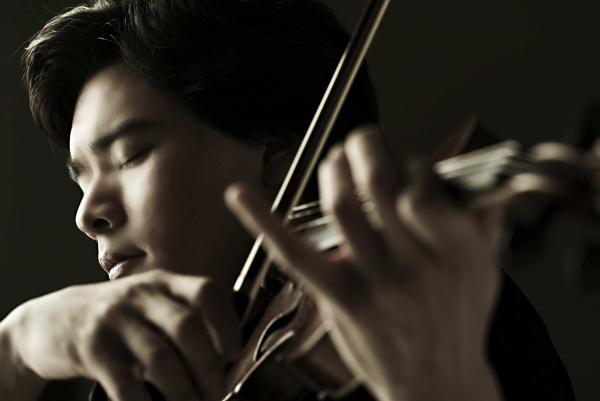By Stephen Brookes • The Washington Post • May 22, 2014
So maybe Mozart’s violin sonatas aren’t the absolute peak of his musical achievements — they’re still hugely enjoyable works, particularly when played with the warmth and easy naturalness that violinist Stefan Jackiw brought to the Sonata in B-flat, K. 378 on Wednesday night at the Kennedy Center’s Terrace Theater. The 29-year-old Jackiw has everything you expect in a rising star — nimble technique, expressive tone, thoughtful interpretation — but his Mozart had a rare and wonderful sense of intimacy as well, as if he were having a private conversation with pianist Anna Polonsky, and we in the audience were just listening in. For all the charm of the Mozart, though, the real heart of the evening (part of Washington Performing Arts Society’s “Virtuoso Series”) came in Witold Lutoslawski’s “Partita for Violin and Piano” from 1984, a work so explosive that the word “volcanic” barely covers it. Darkly lyrical, wildly atmospheric, it built to such white-hot intensity in the central Largo (aptly described by Jackiw as “an apocalyptic meditation”) that you thought the violin would erupt in flames. Jackiw threw himself into the music as if nothing else mattered and turned in the kind of playing you always hope for at a concert but rarely hear. It was an absolutely spectacular performance, run through with urgent and often unsettling beauty.
For all the charm of the Mozart, though, the real heart of the evening (part of Washington Performing Arts Society’s “Virtuoso Series”) came in Witold Lutoslawski’s “Partita for Violin and Piano” from 1984, a work so explosive that the word “volcanic” barely covers it. Darkly lyrical, wildly atmospheric, it built to such white-hot intensity in the central Largo (aptly described by Jackiw as “an apocalyptic meditation”) that you thought the violin would erupt in flames. Jackiw threw himself into the music as if nothing else mattered and turned in the kind of playing you always hope for at a concert but rarely hear. It was an absolutely spectacular performance, run through with urgent and often unsettling beauty.
When Lutoslawski passed away in 1994, the Finnish composer Kaija Saariaho wrote a tender “Nocturne” for solo violin in his memory. It’s a haunting piece sketched in shadowy wisps of sound, and Jackiw used it as a deft transition to Brahms’s Violin Sonata No. 3 in D minor, Op. 108. Brahms can give a glowing finish to just about any concert, and this particular work radiates so much light and life and joyful optimism that it’s impossible not to be swept away by it — especially in Jackiw and Polonsky’s expressive, elegantly polished reading.